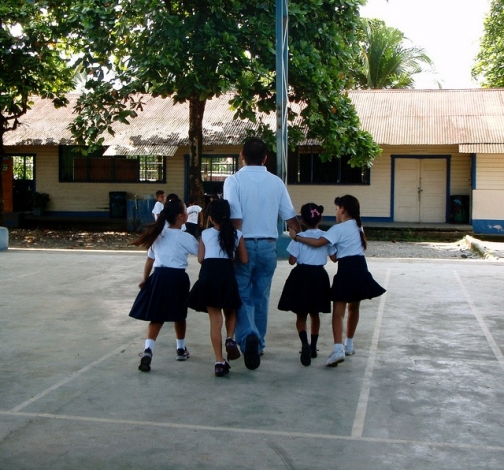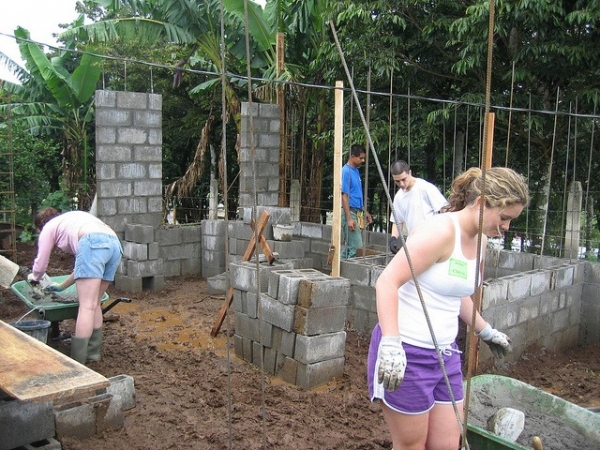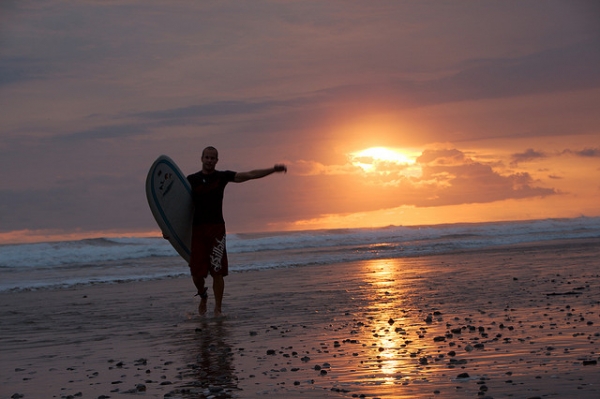Nu pierdeți cele mai bune locuri de muncă!
Abonează-te și săptămânal iți vom trimite un email cu ultimele locuri de muncă disponibile. Introdu adresa ta de email mai jos
Why Costa Rica?
“Pura Vida,” a popular saying by the locals meaning “full of life,” is the perfect way to describe the rich experience that volunteering in Costa Rica will bring. Zip-line through the rainforest, surf crystal blue waters, experience erupting volcanoes, and do a little good in the process. Surround yourself with friendly locals in one of the great eco-tourism capitals of the world.
Know Before You Go
Program costs can range from bare bones with little support to upwards of thousands of dollars for a couple weeks with a lot of support. Support can include home-stays, volunteer housing compounds, an orientation week, and planned excursions with your fellow volunteers. How much or how little you want is up to you and determined by the program you choose.
U.S. and most E.U. citizens can stay up to 90 days without a visa, and all visitors must have a valid passport. Upon arrival, you must also be able to present your ticket home or to the next country if you decide to continue your travels. Always check the Costa Rican consulate website to be up to date on entry and exit requirements and for visa regulations well in advance of your trip because they are subject to change at any time.
Locations
Where you end up volunteering will depend on two things, the type of placement and the organization you choose. Childcare, teaching, construction and healthcare tend to be closer to cities or larger communities while conservation and agriculture placements will be located near beaches or in the rainforest areas. Weigh this carefully when choosing your placement. While location is important, you will be spending the majority of your time on volunteering.
Placement Options
Turtles - One of the biggest volunteer draws is in conservation, specifically with turtle projects. You will work at one of Costa Rica’s gorgeous beaches protecting eggs, cleaning beaches, or working alongside biologists. This placement is perfect for college students or recent grads. looking for field experience. Be aware that there is often an additional charge for these projects.
Agriculture - There’s more to agriculture than farming. In these placements you may find yourself at a coffee cooperative learning all about fair trade coffee from plant to cup. No only will you learn about agricultural production, but there may also be opportunities to assist with marketing and business development. If coffee isn’t your thing, there are plenty of opportunities to get your hands dirty in other areas of farming.
Working with children - In these placements, you could work in an orphanage or teaching local children at a school or community center. While the literacy rate in Costa Rica is already very high, and children have universal access to education, English instruction is in demand. Costa Rica’s place as a premier tourist destination makes learning English a necessity for a future in tourism. Volunteers typically provide tutoring, assistance to teachers, or organize after school programs. If you would prefer an opportunity to care for children, orphanages provide an opportunity to both teach and assist with hygiene and emotional wellbeing.
Healthcare - While Costa Rica provides universal healthcare, there are still areas of the country that benefit from volunteer assistance. In this placement you may shadow doctors and nurses or assist with collecting patient vitals. Be aware, however, that there is a good chance that you will not be working directly with patients unless you are a trained medical professional. Check with the volunteer organizations ahead of time to confirm exact volunteer activities and requirements.
Construction - Building community centers and schools or landscaping and painting are just a couple of options for construction work. In this placement option, you will work alongside a trained construction worker to improve buildings and possibly have a hand in new ones. While most programs don’t require any experience, you should be ready for long, labor-intensive days.
Free Time Excursions
In addition to being a fabulous place to volunteer, Costa Rica is a buzzing tourist destination for both eco-conscious and adventure travel which means you will have access to some of the most exciting attractions in the world.
Just a Couple of Options:
- Arenal, an active volcano, is a must see for all visitors.
- For a bit of solitude visit Tenorio Volcano National Park to see the Rio Celeste- a stunning light blue river and lagoon.
- Get inspired by the Guanacaste region in the northern part of the country for wildlife and beautiful beaches.
If you decide to do some traveling on your own or with your fellow volunteers, here are some financial matters to keep in mind. The local currency is the colon, but many businesses willingly accept U.S. dollars because it’s viewed as a more stable currency. Be sure to know the exchange rates in order to get the best value for your money. ATM machines are readily available in the cities, and credit cards are taken at most places. If you are on a budget, as most volunteers are, you can survive on $25- $35 per day for basic hostels, food, and transport. If money is no object, you will also be able to find luxury resorts throughout the country.
How to Get There
Like most of us, you may not have an unlimited budget for your trip. Fear not because there are many opportunities and plenty of people who are waiting to help you volunteer in Costa Rica. Crowd funding is a great way to let your family, friends and social networks help fund your trip. The internet is also full of scholarships and grants for international volunteers. If your town has a local Rotary Club, talk to them. They may be willing to chip in as well. Extra airline miles hanging around? Cash them in for your flight which can take a bulk of the expense off of the trip.
Sign in to publish a comment



Be the first to comment on this post.